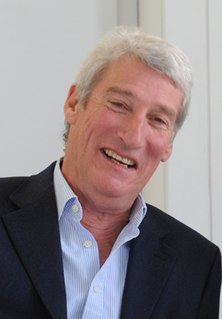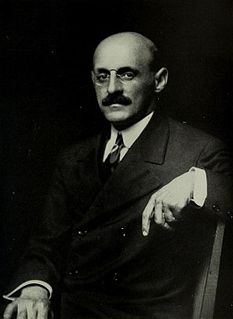A Quote by David Hume
There is, indeed a more mitigated scepticism or academical philosophy, which may be both durable and useful, and which may, in part, be the result of this Pyrrhonism, or excessive scepticism, when its undistinguished doubts are corrected by common sense and reflection.
Quote Topics
Related Quotes
Never trust anyone who has no doubts. And I'm not talking about scepticism either: scepticism can be a healthy thing. You can have an argument with someone who's a sceptic. When I say 'cynic', I mean someone who has given up, and they want you to give up too, so it makes them feel better about themselves.
A common and natural result of an undue respect for law is, that you may see a file of soldiers, colonel, captain, corporal, privates, powder-monkeys, and all, marching in admirable order over hill and dale to the wars, against their wills, ay, against their common sense and consciences, which makes it very steep marching indeed, and produces a palpitation of the heart.
Curiosity, which may or may not eventuate in something useful, is probably the most outstanding characteristic of modern thinking ... Institutions of learning should be devoted to the cultivation of curiosity, and the less they are deflected by the consideration of immediacy of application, the more likely they are to contribute not only to human welfare, but to the equally important satisfaction of intellectual interest, which may indeed be said to have become the ruling passion of intellectual life in modern times.
Nothing can be more unphilosophical than to be positive or dogmatical on any subject; and even if excessive scepticism could be maintained it would not be more destructive to all just reasoning and inquiry. When men are the most sure and arrogant, they are commonly the most mistaken, and have there given reins to passion, without that proper deliberation and suspense which can alone secure them from the grossest absurdities.
It seems certain, that though a man, in a flush of humour, after intense reflection on the many contradictions and imperfections of human reason, may entirely renounce all belief and opinion, it is impossible for him to persevere in this total scepticism, or make it appear in his conduct for a few hours.
It has often been argued that absolute scepticism is self-contradictory; but this is a mistake: and even if it were not so, it would be no argument against the absolute sceptic, inasmuch as he does not admit that no contradictory propositions are true. Indeed, it would be impossible to move such a man, for his scepticism consists in considering every argument and never deciding upon its validity; he would, therefore, act in this way in reference to the arguments brought against him.
Therefore, philosophy does not give sense in mind happiness. It keeps in mind the only truth. However, it is very possible that the truth may be painful, may be distressing, may be destructive of happiness or makes it impossible. Religion, unlike philosophy, is under the category of the useful one. It promises happiness and says what it is necessary to do and what it is necessary to be to deserve or to obtain it. Consequently, illusion is more important than truth if it gets happiness.




































